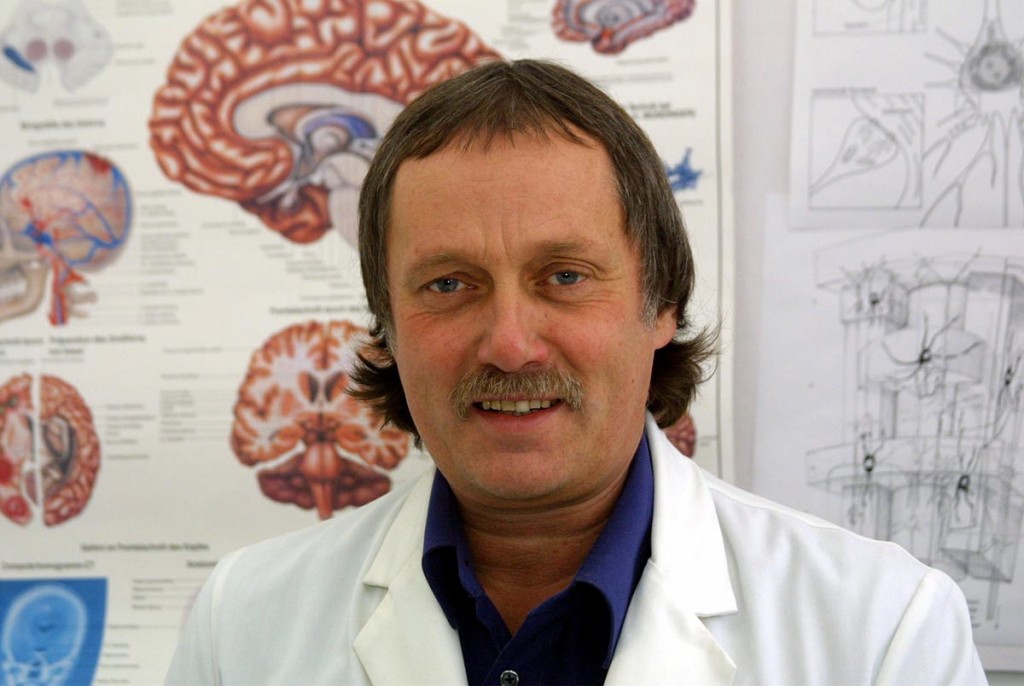Systems science applications in medicine are known since the 1950s when Ludwig von Bertalanffy was founding his general theory of living systems. At present, by new technological and formal methods in modern biology and medicine this perspective gets new support.
The emerging field of Systems Medicine aims at a systemic understanding of health and disease on the basis of complex molecular data sets that are obtained by high-throughput technologies and that are analyzed by mathematical tools of complexity research. These new approaches promise better diagnosis, treatments, predictions and preventions of diseases by personalized data and participation of the patient.
But not only systems thinking in medicine, also systems thinking of medicine is important: Beyond economic approaches the methodologies of systems analysis and systems design are useful tools for the structural and functional analysis as well as the transformation of health care systems.
Systems Medicine
Maintenance of health and the development of diseases are the result of complex dynamic interactions. Systems Medicine is the application of systems biology approaches to medical research and medical practice. Its objective is to integrate a variety of biological/medical data at all relevant levels of organization using the power of computational and mathematical modelling, from the level of inter- and intracellular molecular networks of the cell to the levels of the interdependence of humans and their environments.
As many side-effects of medications are caused by the linkage of different organ systems such as heart and lung, the immune system, endocrine system and nervous system, a new approach in medicine is necessary. These connections are statistically known as co-morbidity.
The first step towards systems medicine intended a better understanding of functions and dysfunctions of the organism by using computer simulations of cell and tissue processes. The connections can now be interpreted by such models that are based on data from inter- and intracellular molecular networks (cytokines, neurotransmitters, etc.).
Health Care Systems
At present, also clinical systems medicine is constituted that focusses on the interaction of organismic subsystems. Some protagonists call this the 4P medicine, for personalized (individual genome analysis), predictive, preventive and participative medicine (L. Hood, Institute for Systems Biology, Seattle) to develop innovative therapies and tailored preventive treatments.
The future outlook is a scenario in which the health care system itself might change based on these findings. A complementary research focus of the Bertalanffy Center in Service Systems Design for large scale, multi-stakeholder complex social systems like health care might be the next promising step.
 Prof. Dr.Dr.Dr. Felix Tretter is Professor for Clinical Psychology at the University of Munich and Vice-President of the Bavarian Academy of Addictions. Formerly he was Senior Physician of a Department for Addiction in a psychiatric hospital; his research interests are addiction, neurobiology, systems science, human ecology and philosophy. He studied Psychology, Medicine and Social Sciences at the University of Vienna and Munich and conducted experimental brain research for several years at the Max Planck Institute for Psychiatry in Munich. felix.tretter@bcsss.org
Prof. Dr.Dr.Dr. Felix Tretter is Professor for Clinical Psychology at the University of Munich and Vice-President of the Bavarian Academy of Addictions. Formerly he was Senior Physician of a Department for Addiction in a psychiatric hospital; his research interests are addiction, neurobiology, systems science, human ecology and philosophy. He studied Psychology, Medicine and Social Sciences at the University of Vienna and Munich and conducted experimental brain research for several years at the Max Planck Institute for Psychiatry in Munich. felix.tretter@bcsss.org
Benefit-Risk Communication at Corona: Aspects of Optimization
Proposal for and report from an interdisciplinary video meeting by Felix Tretter & Stefan Blachfellner on the 1st of February, 2021. Fundamentally, it is in question how a knowledge society can overcome its breaking points of consensus, not only on climate change, but now again on the topic of corona….
A systemic view on the Corona-crisis revisited by BCSSS Vicepresident Felix Tretter
A SYSTEMIC VIEW ON THE CORONA-CRISIS Felix Tretter, Vicepresident, BCSSS, (April 25th, updated on December 3rd 2020) Revisited Preface Now in fall 2020, I think it is time to review lessons learned from CVOID-19 crisis. Facing the beginning Corona pandemic in spring 2020 I tried to identify topics for analysis…
A systemic view on the Corona-crisis by BCSSS Vicepresident Felix Tretter
A SYSTEMIC VIEW ON THE CORONA-CRISIS Felix Tretter, Vicepresident, BCSSS, (April 25th) Preface The so-called “Corona-crisis” is a shocking reset-push for the global society. Fundamental nature-humans relations that up to now seemed to be controlled by technology and society are currently disrupted by this “communicable disease”. With other words: the…
Ethical and Juridical Aspects on Human Digitalization in Health (HDIHA)
Concluding a very successful year for the BCSSS Research Groups ‘Human Digitalization’ as well as ‘Systems Medicine and Health Care Systems’, BCSSS Vice President Felix Tretter organized the sixth symposium in the series of Big Data and Health events on November 20 to 21. Since fall 2018, the group had…
Systems Medicine: Comorbidity of diabetes and depression
On 22 to 23 October, BCSSS Vice President and Health Care Research Group leader Felix Tretter invited to a second round of his expert workshop on the issue of Systems Medicine. In the previous meeting in April 2019, the group discussed the basics of an “Organismal Systems Medicine” (OSM) as…
Issues of Assessment in Human Digitalization in Health Affairs (HDIHA)
From 8 to 9 October 2019, BCSSS Vice President Felix Tretter continued his efforts to bring together scientists, medical professionals and big data experts as part of the BCSSS Research Groups ‘Human Digitalization’ as well as ‘Systems Medicine and Health Care Systems’. Since fall 2018, the group had been examining…
Groundbreaking new apprenticeship program promotes systems science principles in practice
Building on a 2017 initiative by Ray Ison, BCSSS board member, IFSR president and professor at the Open University UK, in convening a meeting of employers from which emerged an employer-led Trailblazer Committee, the UK the Institute for Apprenticeships & Technical Education has recently approved a new Master’s level apprenticeship…
Evaluation scales for Digital Health Technology Assessment (DHTA)
The basic goal of the series of BCSSS Vice President Felix Tretter’s workshops on (human) digitization is to make cyber-systemic perspectives of living systems explicit. Health and the health care system are important issues in this context. The aim of the previous workshops (WS I-III) was to examine the epistemic…
Subscribe to our Systems Newsletter
Recent News
- Keynote at the invitation of CIRCULAR4.0 “The European Green Deal – Economic Potential for SMEs”
- Keynote address at the invitation of Energie Steiermark “Potentials of the Circular Economy”
- Expert interview with Circular Business Academy (CBA), Slovenia on the innovation potential of the circular economy for SMEs
- UNIDO: Global consultations on circular economy
- Mission Innovation Austria 2021: A platform for all drivers and shapers of innovation and the energy system of the future



